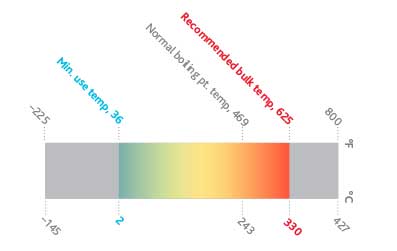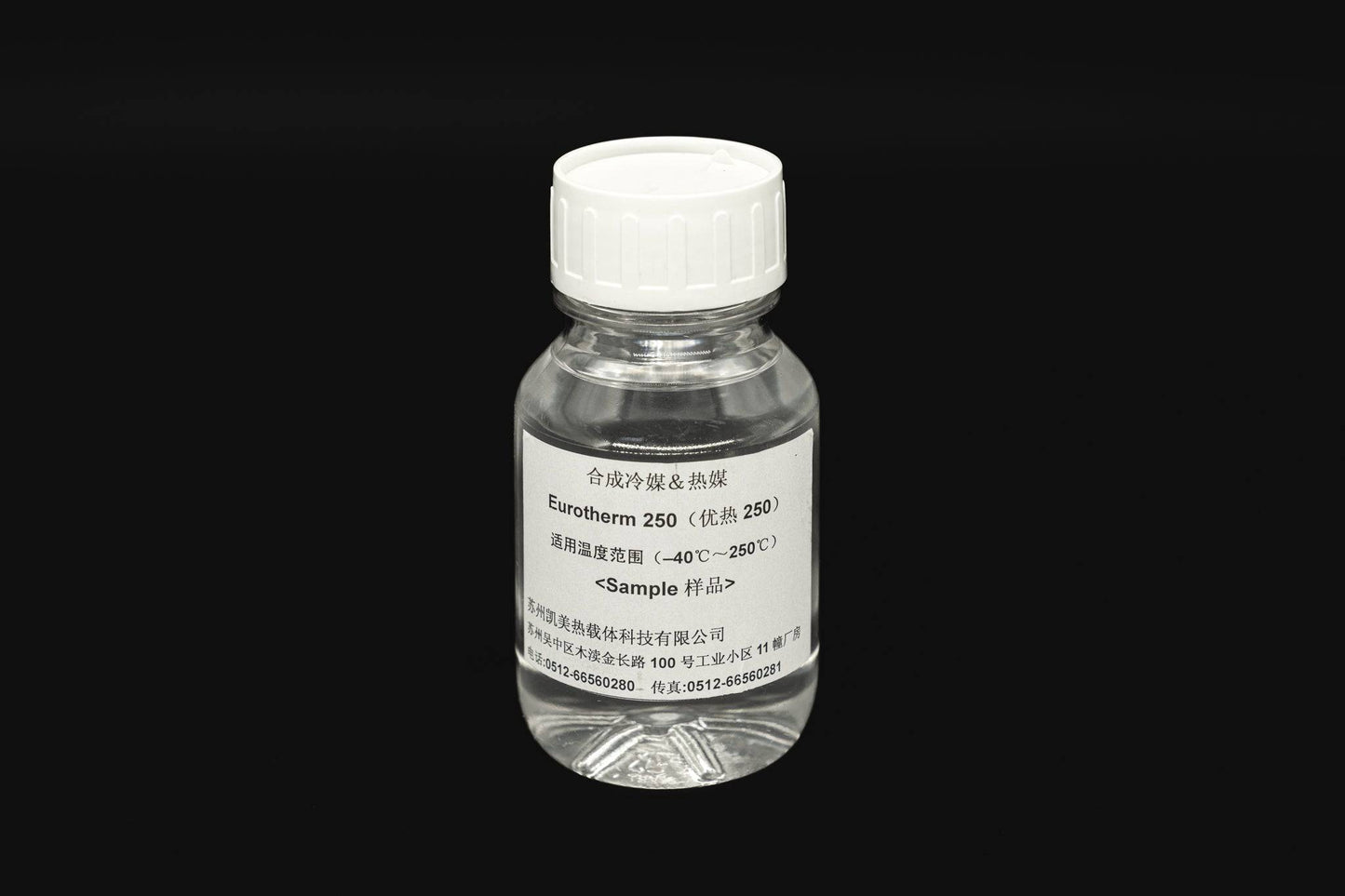Exactly How Heat Transfer Fluid Impacts the Effectiveness of A/c Equipments
Exactly How Heat Transfer Fluid Impacts the Effectiveness of A/c Equipments
Blog Article
Why Warm Transfer Fluid Is Essential for Optimizing Power Transfer in Systems
The duty of warmth transfer fluids in maximizing power transfer is critical for attaining effective thermal monitoring across numerous commercial fields. These liquids help with smooth warmth exchange, guaranteeing processes operate within optimal temperature ranges and minimizing the threat of getting too hot.

Role in Thermal Administration
Heat transfer fluids play a crucial role in thermal monitoring by effectively controling temperatures in numerous industrial processes and systems. These specialized fluids facilitate the transfer of warm in between different components, making sure optimal operating problems and stopping getting too hot. By keeping precise temperature level control, warm transfer liquids make it possible for markets such as chemical production, oil and gas, and power generation to operate safely and efficiently.
The option of an appropriate warmth transfer fluid relies on numerous aspects, including thermal security, warmth capability, and viscosity. High thermal stability makes sure that the liquid can withstand severe temperatures without weakening, while a high warm capacity allows it to absorb and release considerable quantities of heat - heat transfer fluid. Reduced viscosity minimizes the power needed for pumping, contributing to overall system efficiency
Additionally, heat transfer liquids are important in applications like refrigeration, where they aid take in and dissipate warm throughout the cooling cycle. In solar thermal power systems, these fluids capture and transport solar warmth to create electrical energy or provide warm water. Their flexibility to diverse operating problems and capacity to maintain consistent thermal efficiency underscore their value in industrial thermal management, promoting operational connection and enhancing safety and security measures.

Enhancing System Performance
To take full advantage of the advantages of thermal monitoring, improving system performance via the critical use warm transfer liquids is paramount. These liquids play a critical role in maximizing energy transfer by promoting constant thermal law, which in turn influences the overall performance and long life of systems. Efficient warm transfer leads to reduced power losses, reduced operational prices, and improved dependability of tools. By maintaining ideal temperature level degrees, heat transfer fluids assist ensure that systems operate within their created criteria, thereby stopping getting too hot and reducing the risk of element failing.

Kinds Of Heat Transfer Fluids
The variety of warmth transfer liquids emphasizes their essential duty in an array of commercial applications, each customized to fulfill details thermal monitoring requirements. These liquids facilitate effective energy transfer and are chosen based on key properties such as thermal security, thickness, and warm capacity. The primary kinds consist of water, glycol services, oils, and synthetics, each offering distinct benefits.
Water is one of the most typical web warm transfer medium as a result of its high details warm capability and low cost. Its usage is restricted by its freezing and boiling points. Glycol mixtures, frequently useful content used in heating and cooling systems, provide a reduced cold point, adding versatility in numerous environments. Mineral oils are favored for their thermal security and non-corrosive nature, making them appropriate for high-temperature applications.

These fluids make sure premium efficiency in systems where typical liquids might fall short. The option of a warmth transfer liquid is critical, as it influences system efficiency, safety, and longevity.
Environmental and Economic Advantages
Utilizing the appropriate heat transfer liquids supplies considerable environmental and economic benefits for industrial procedures. Environmentally pleasant warmth transfer fluids, frequently biodegradable and safe, minimize the danger of soil and water contamination in the occasion of leakages or spills, thus protecting ecological communities and conforming with stringent ecological regulations.
Financially, the right warm transfer fluid can dramatically decrease functional costs. Effective warmth transfer decreases power expenditure, causing lower energy costs and improved profitability. In addition, fluids with extensive lifecycle performance reduce the frequency of substitutes and maintenance, minimizing downtime and connected costs. Spending in top notch liquids can also reduce the danger of devices deterioration and failing, avoiding costly repair services and expanding the life-span of crucial facilities. In affordable markets, these cost savings and performances offer a check these guys out distinctive benefit, allowing companies to assign sources a lot more properly and purchase additional advancement. On the whole, the critical use ideal warm transfer liquids sustains sustainable economic development and environmental stewardship.
Picking the Right Liquid
Exactly how does one browse the complex process of selecting the right warm transfer liquid for commercial applications? Thermal stability makes certain the fluid can endure high temperature levels without deteriorating, while compatibility stops deterioration or other damaging reactions with system components.
In addition, the fluid's warmth ability and thickness are paramount. A high heat capacity allows the liquid to soak up and move even more power, enhancing performance.
Verdict
The strategic option and application of heat transfer liquids are essential to optimizing energy transfer across numerous systems. By guaranteeing high thermal security and capability, these liquids supply precise temperature level control and enhance general system effectiveness.
Report this page